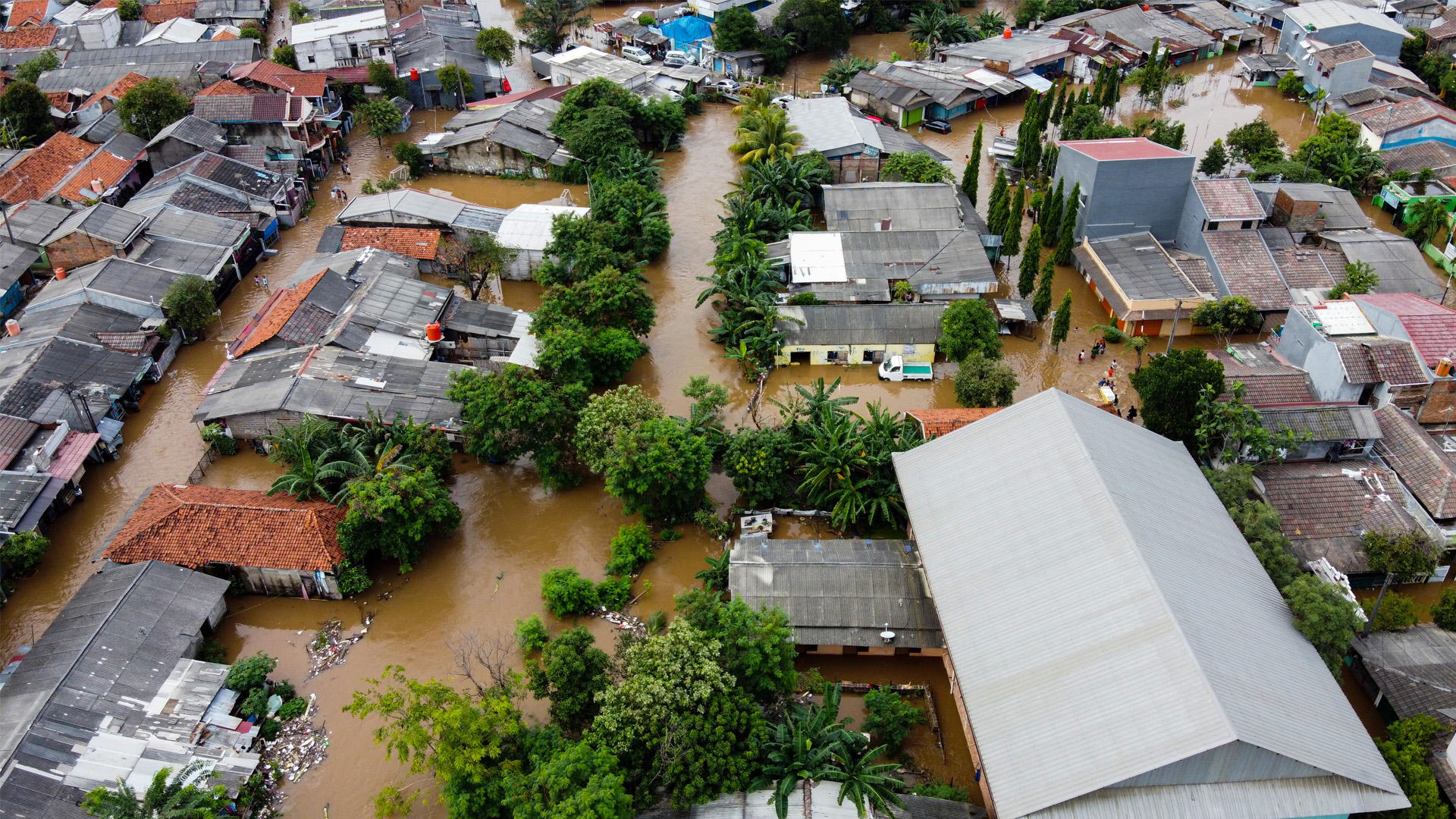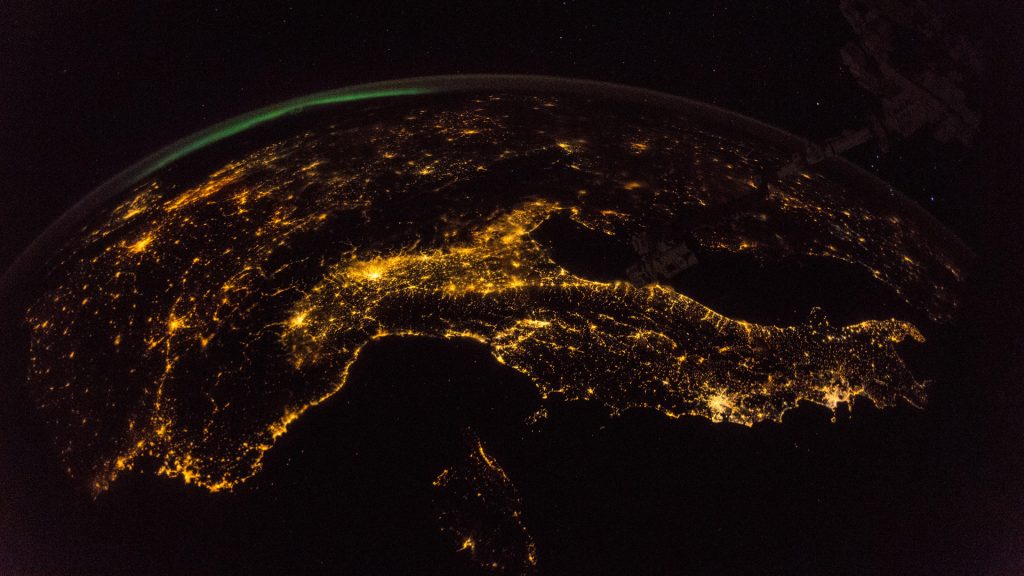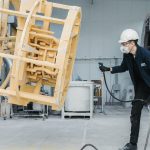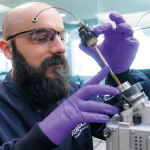Researcher in Residence: Decoding climate displacement

Dr Astrid Werkmeister, a researcher in the Earth Intelligence Observatory at the University of Strathclyde, has been awarded funding from the Innovation Launchpad Network+ to conduct a feasibility study into monitoring community resilience from satellites to enable identification of the most vulnerable communities affected by climate change. Satellite Applications Catapult, a world-class research hub based in Harwell (UK), will be hosting Astrid’s activities.
As environmental crises escalate globally, comprehensive analysis and strategic interventions are essential to address these challenges. This project leverages satellite technology to monitor and evaluate environmental changes resulting from extreme weather events such as hurricanes, floods, and droughts.
A unique aspect of this approach involves observing night-time lighting in affected areas, which is believed to indicate infrastructure damage and recovery speed. By integrating satellite data with resources like the Migration Data Portal, the project aims to uncover the ‘push’ factors behind climate-induced displacement, revealing the intricate relationship between environmental degradation and human migration patterns.
The project will also analyse weather events in regions that did not result in displacement, aiming to identify factors contributing to resilience and recovery. By quantifying the health and economic impacts and examining various challenges faced by affected communities, the project seeks to deepen understanding and identify high-impact interventions to enhance resilience and mitigate impacts on vulnerable populations.

Ultimately, the goal is to establish links between environmental changes, health, economy, and migration, aligning with the Sustainable Earth mission to catalyse change and foster sustainable futures.
Astrid said of the project: “We are exploring the requirements necessary to develop an innovative satellite data product that combines existing satellite data with other data sources to monitor vulnerable communities. Our goal is to identify and assist these communities early, potentially preventing migration. I strongly believe that the vast majority of people do not want to leave their homes and migrate. By understanding and addressing the factors that drive migration and looking at how these push factors are influenced by climate change, we can help people remain in their communities and build a more resilient future.”
Will White, Sustainable Mission Lead at Satellite Applications Catapult added: “We are thrilled to welcome Dr. Astrid Werkmeister on board as our Researcher in Residence. Her expertise will be invaluable assets as we tackle this pressing issue of climate displacement. Decoding climate displacement is not just a research effort; it’s a mission to address one of the most pressing challenges of our time. With Dr. Werkmeister on board, this project is crucial in developing innovative solutions to support those affected by climate change, and we are looking forward to significantly enhancing our capacity to make a meaningful impact.”



